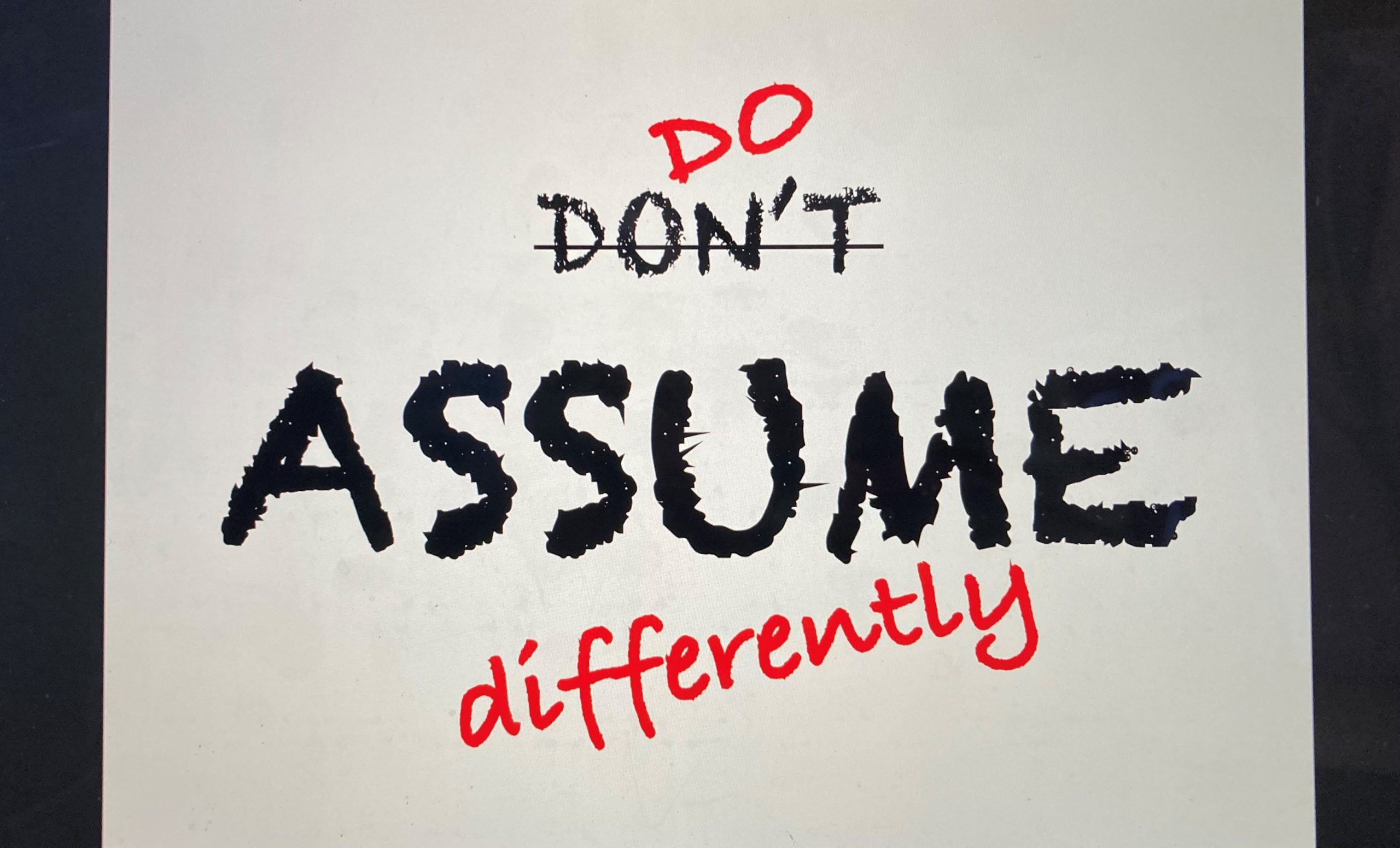Assumptions

Micah Pederson
I am a mom to two children biologically and many children through foster care. My husband and I have been married three years. Our foster home is a sp...

Most of us have been told, at one time or another, not to make assumptions, for they can often be or lead to incorrect conclusions. I see a great deal of wisdom in this. I’m a mom to many children who have disabilities or severe medical conditions. Daily, my children and I are frustrated by those around us. They make incorrect assumptions about my children based on their disabilities or diagnoses.
While many assumptions anger me, I must admit that I have also become quick to assume many things throughout my parenting journey. Through painful experiences time and time again, I have learned to assume that I will have to fight for my children to be treated as human. That every stare is unkind, that a stranger approaching should place me in defence mode, or that professionals we work with will hesitate to see my children as who they are.
Right or wrong, assuming happens all the time and it makes sense that people say to avoid it entirely.
However, I’m not sure that a complete absence of assumptions about anything ever is something we can achieve as humans. It is part of our nature to fill in blanks about a situation so that we can make accurate judgements and, therefore, choose appropriate actions.
Rather than asking that you refrain from making assumptions, I have two requests:
1) That you, as a human being, choose to change the nature of what you assume about disabled individuals until told otherwise.
2) You be a part of changing the regular experiences families of disabled individuals have so that we, too, can begin to assume differently.
When interacting with families like mine, changing what you assume might look like:
- Assuming my children’s competence
- Assuming my children can hear and understand every word you say
- Assuming my children are keenly aware of your body language and unspoken reactions to them
- Assuming my children don’t want personal topics about them discussed without permission
- Assuming my children want to be included, no matter the effort required
- Assuming my children want questions about them directed to them, no matter if/how they communicate verbally or non-verbally
- Assuming my children have age-level intelligence and interests.
- Assuming my children live vibrant, meaningful lives (because I promise they do) and will continue to for a long time.
- Assuming my children hate to be talked to as if they are younger than they are or as if they are to be pitied.
- Assuming my children have unique opinions, talents, interests, struggles, thoughts, and feelings.
- Assuming my children are completely different from anyone else you have ever met, despite a similar disability or diagnosis, and don’t want to be compared to others, disabled or not.
- Assume we do not want your advice about our situation unless we ask for it.
I Know I Am Not Alone.
When I say that disabled people and their families desperately want to have our poor or defensive assumptions proven wrong so often we can begin to assume differently about the intentions of those around us. What if you become a part of changing what we experience daily, that we might:
- Start assuming you are staring because you are admiring our children instead of being rude.
- Assuming you want our children to be fully included and you will do whatever it takes to accommodate all of us.
- You assume a comment that comes across wrong was meant in kindness, was innocently ignorant, and you desire to be taught how to be more informed and aware.
- Assume you will politely ask if you have questions about our children’s needs. How best to interact/accommodate, or want to know better how to have a relationship with our children and our family.
Imagine what a world we could live in if we assumed the best whenever possible. Sometimes, we may not even realize how hurtful or off-base our assumptions are. Even if good assumption happen to be incorrect, the world is not going to come to a screeching halt. The chances are, we can do less harm incorrectly assuming the best that assuming the worst in many situations.
So DO assume…differently.


